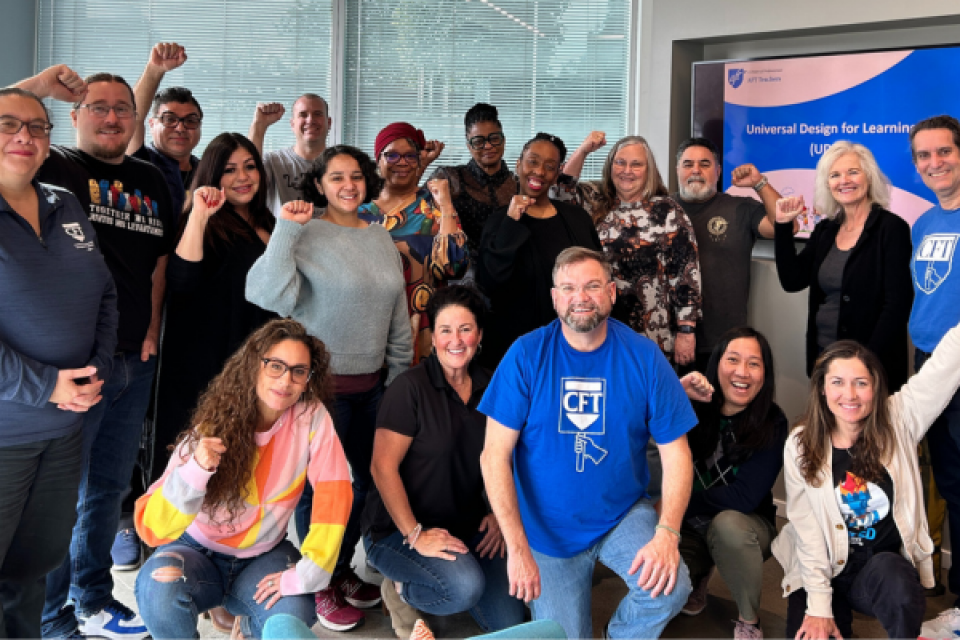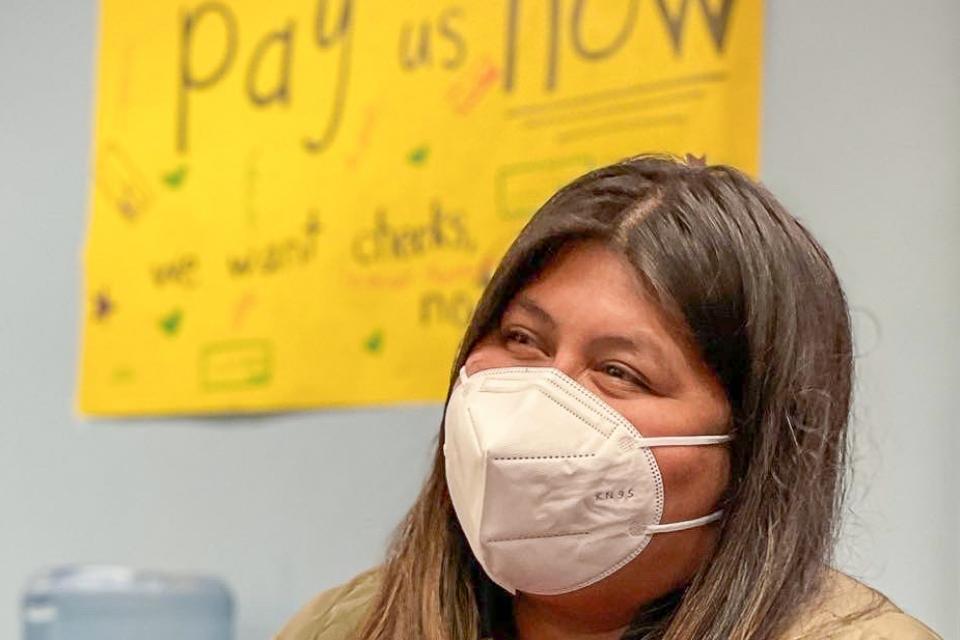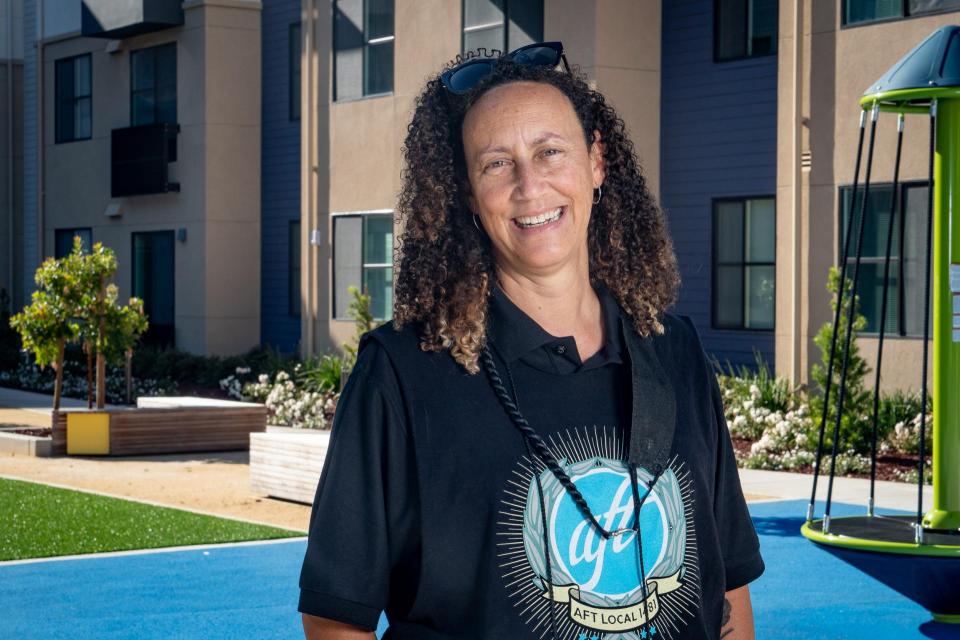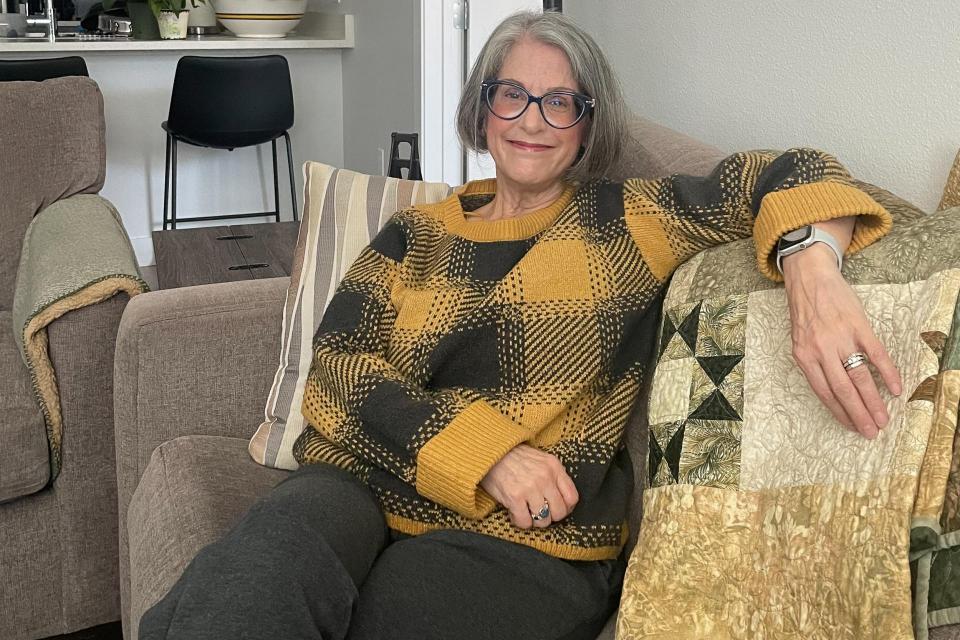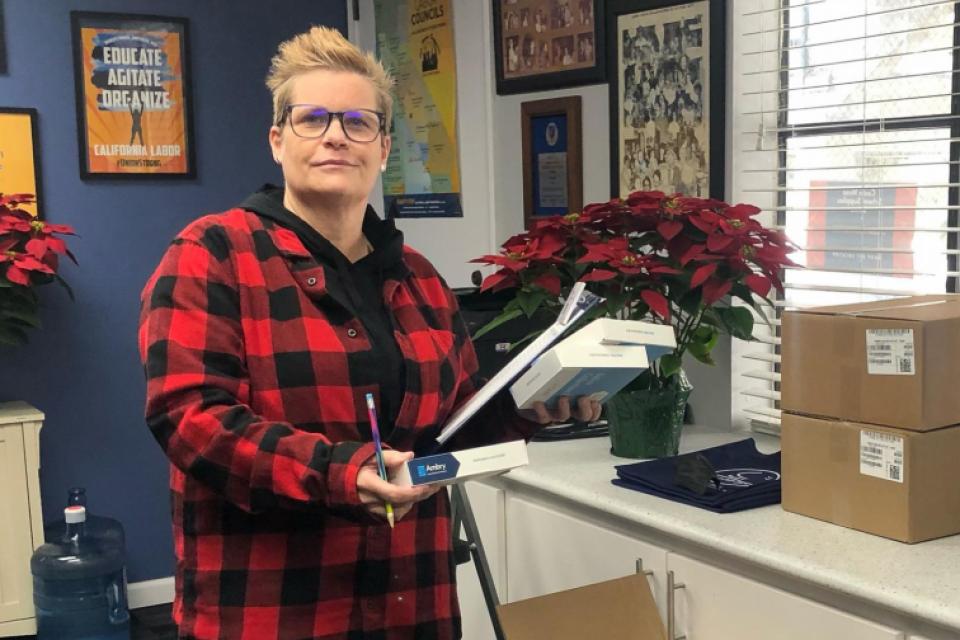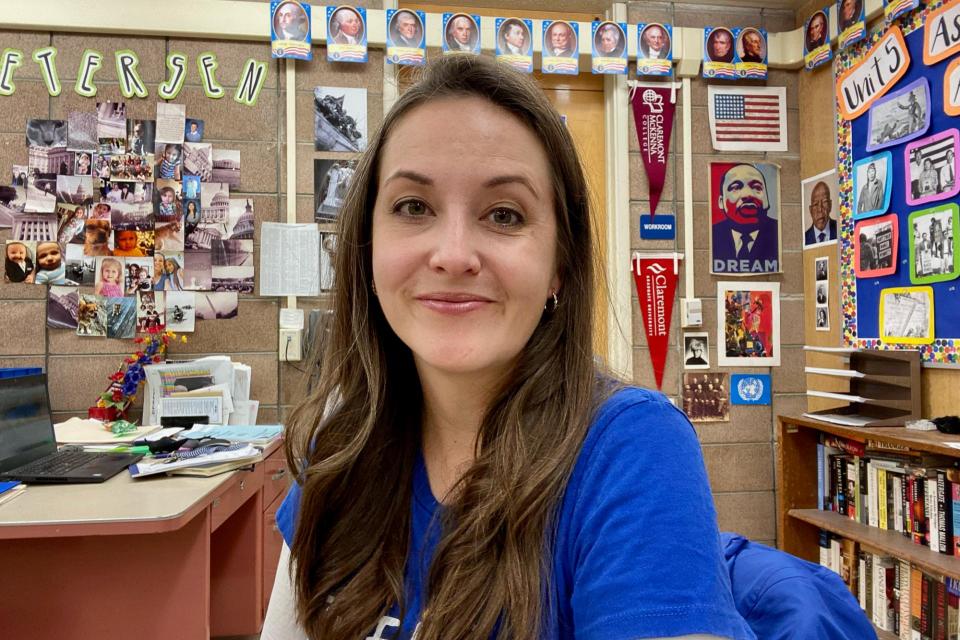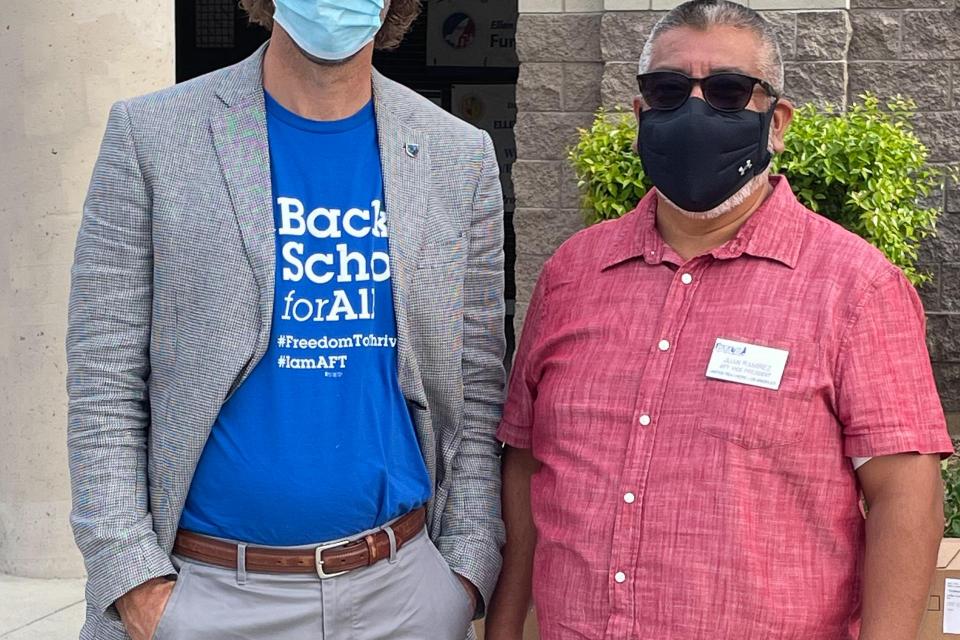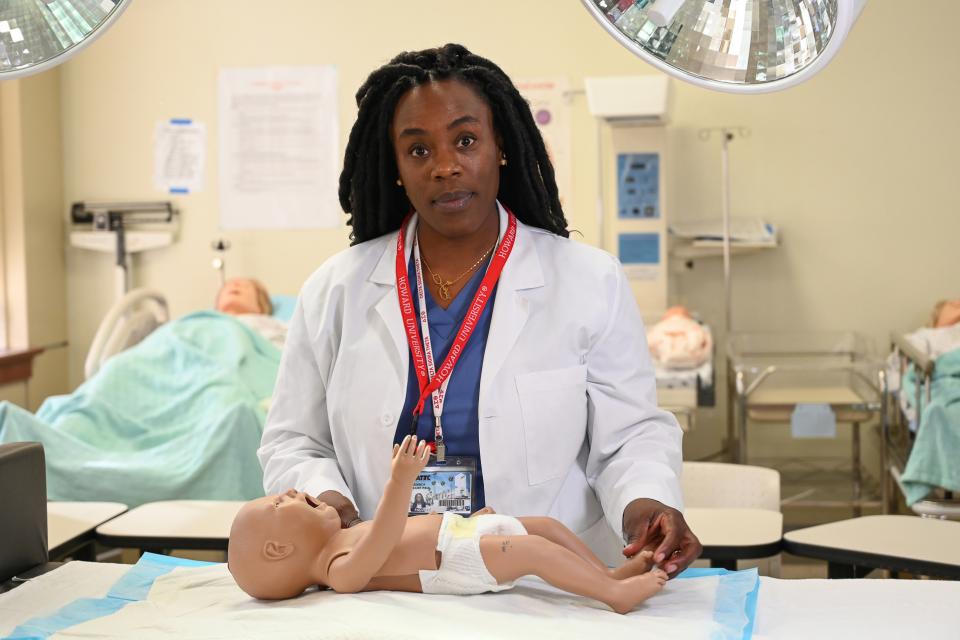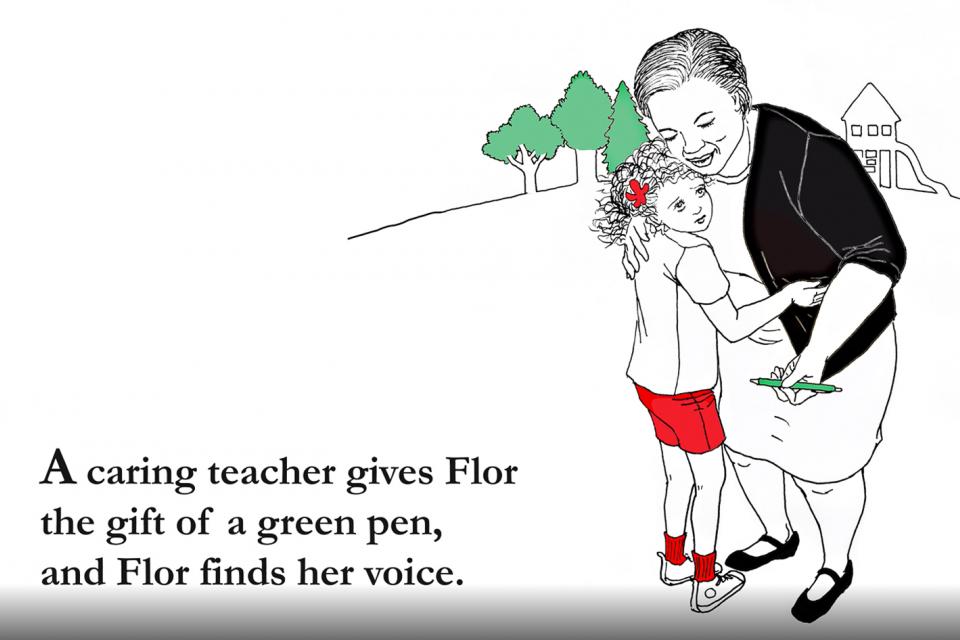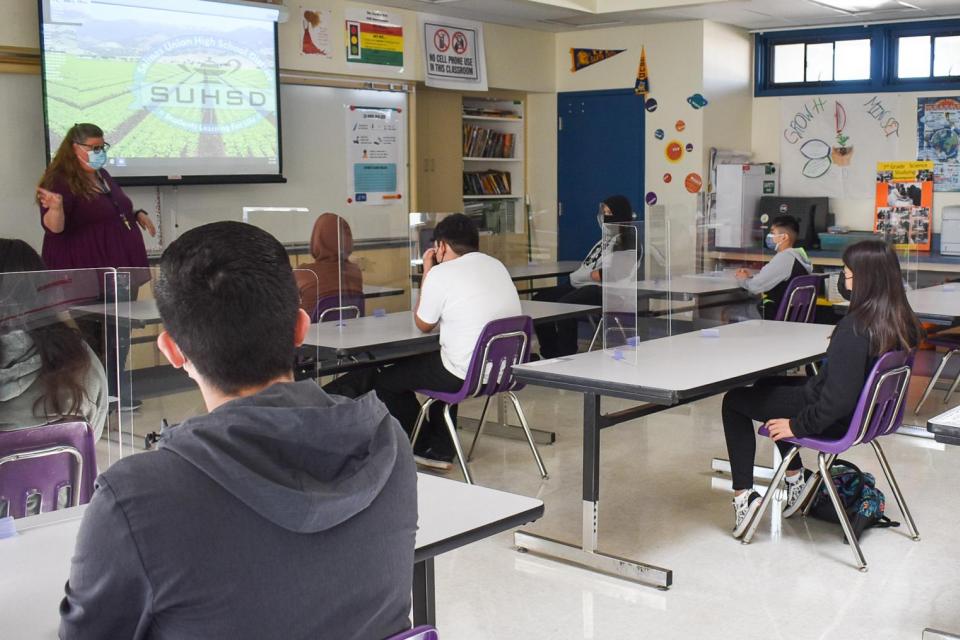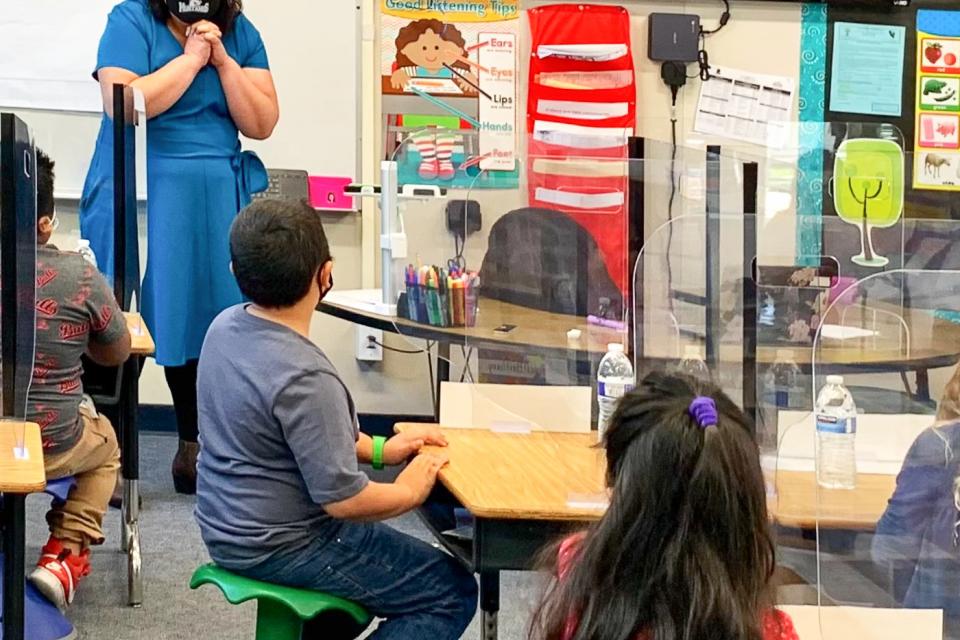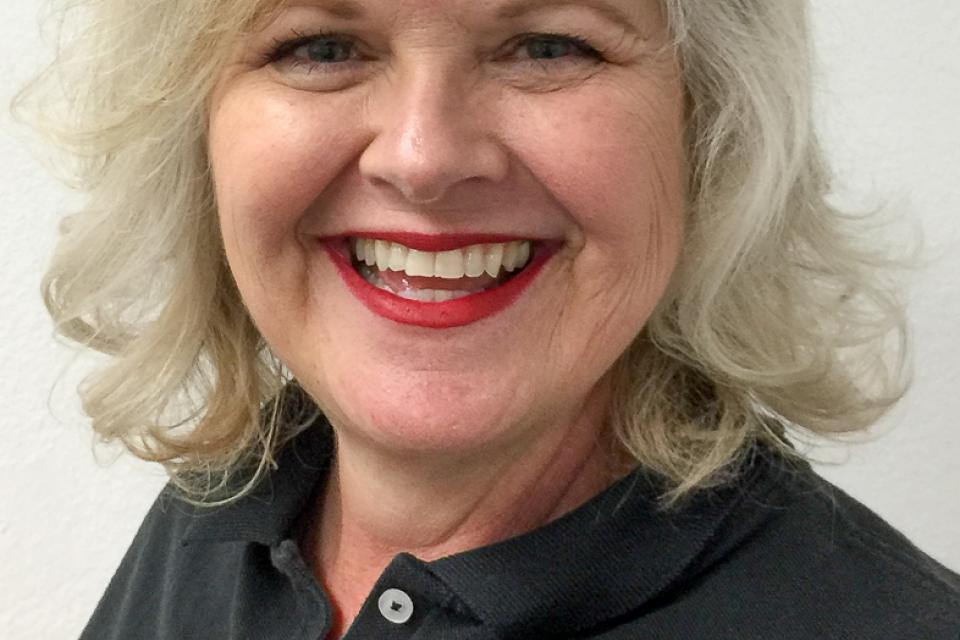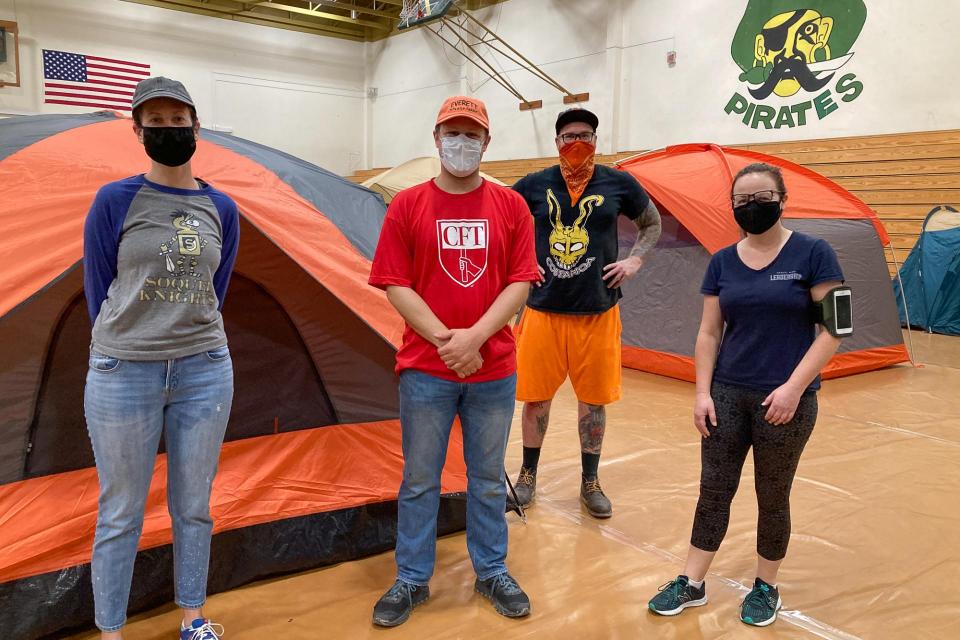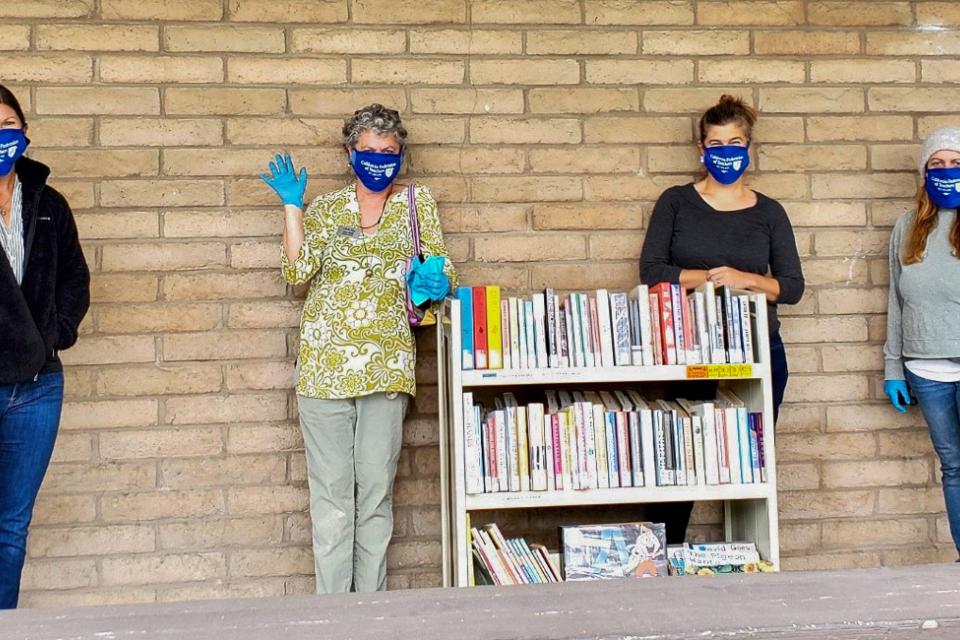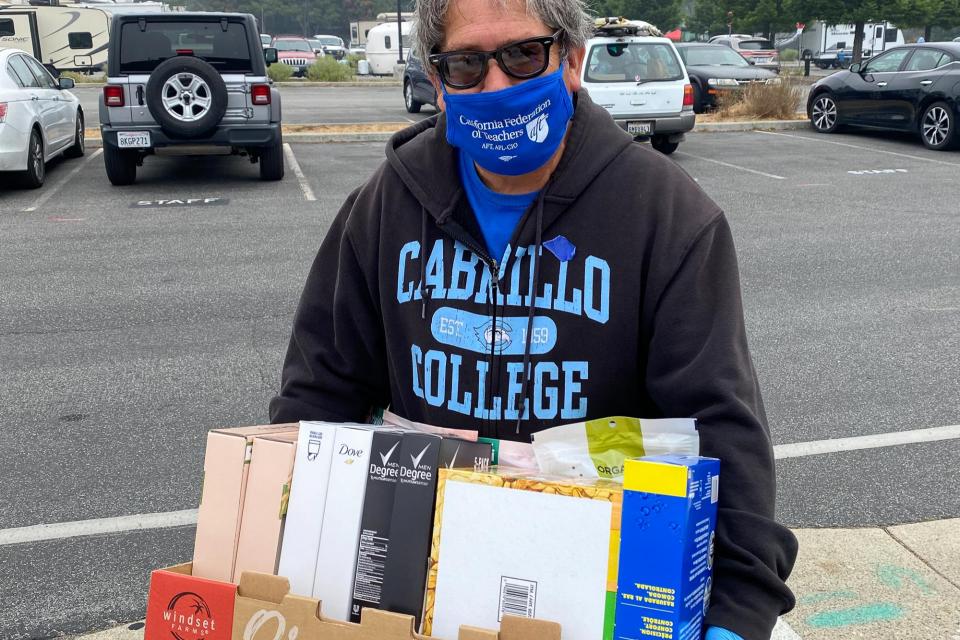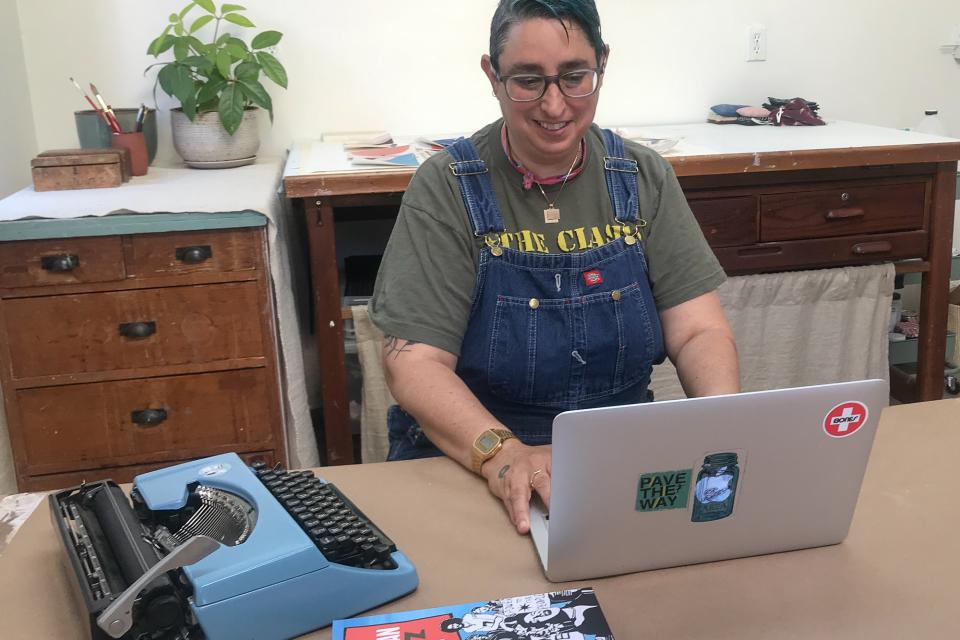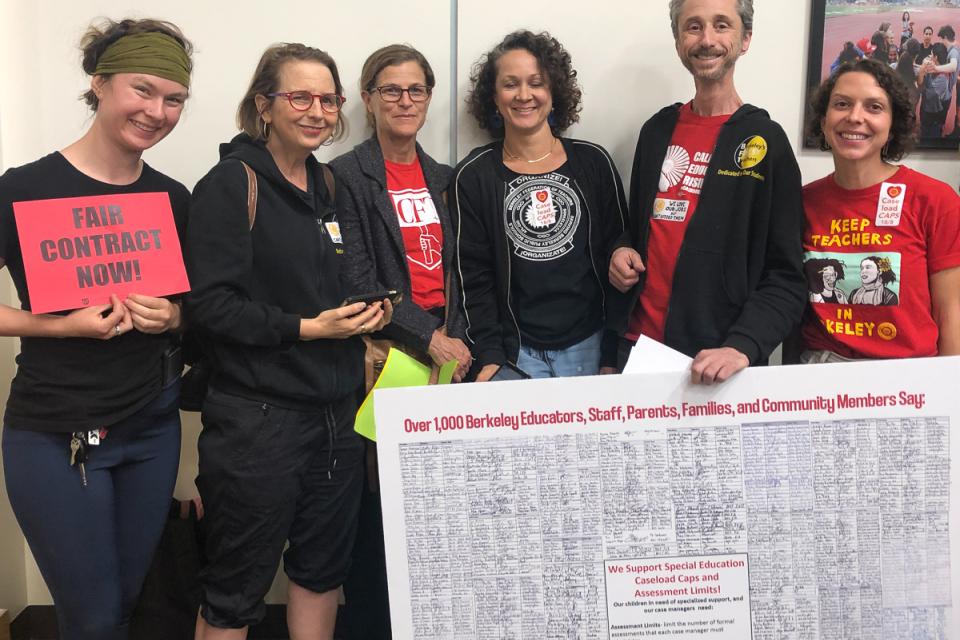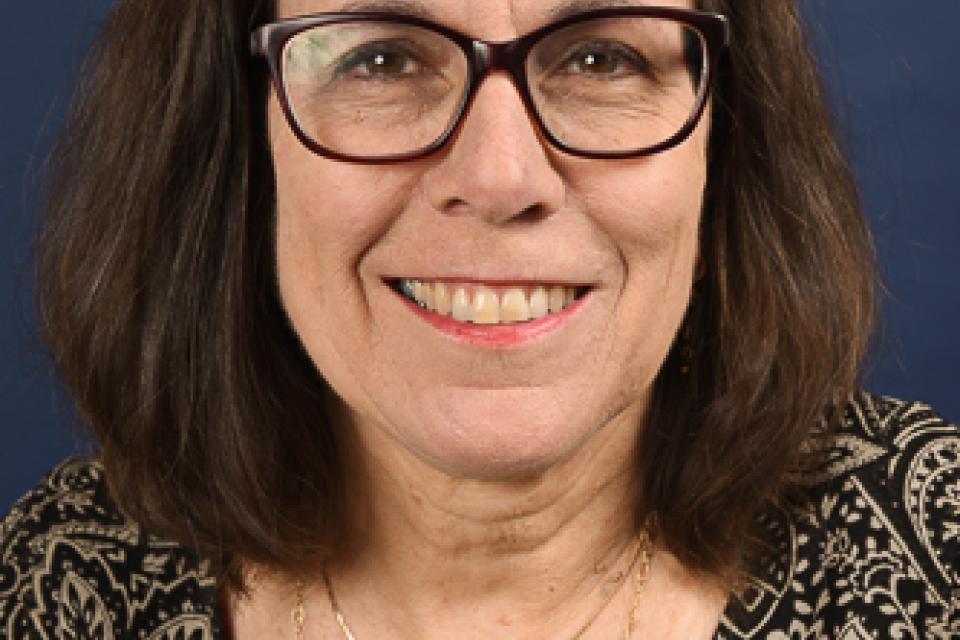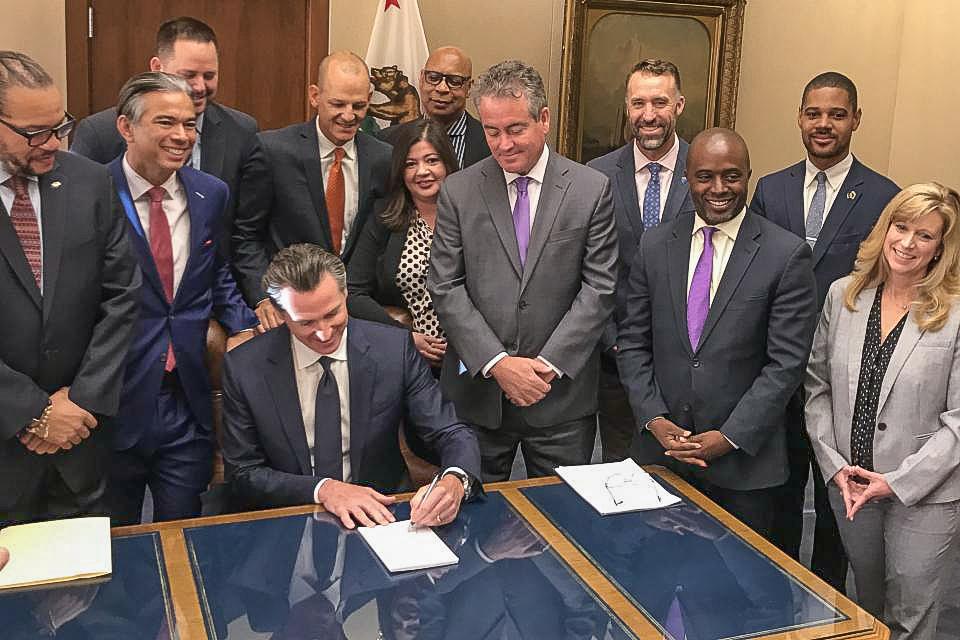ECK-12 Articles
EC-TK-12
News for educators and support staff working in early childhood through high school.
Introducing CFT’s Newest Task Force: Educators for Quality Schools
EC/TK-12 Council
Members of a new CFT task force have been working on coming up with actions, both legislation and bargaining, to address the problem of understaffing in schools.
Prior to the formation of the task force, EC/TK-12 Council President Steve McDougall says he and CFT President Jeff Freitas discussed the importance of addressing the issue of understaffing.
Fourth Annual Special Ed Summit Leaves Attendees with Hope and Strategy
WRITTEN BY: EMILY WILSON
When Steve McDougall became the president of the Early Childhood/TK-12 Council, he sent out a survey to the local leaders asking them what trouble areas they saw that needed addressing.
“Special education always percolates to the top because it’s an underfunded mandate since 1975,” he said.
In our voices: The state of our schools, workers, and students
Educators report staff shortages, mental health issues are ubiquitous
Yajaira J. Cuapio has been a social worker in the San Francisco Unified School District for eight years. With the pandemic, she says the last couple of years have been challenging.
“Students have been isolated for so long that it’s having an impact on their social skills. They’re arguing and fighting, and it leads to unsafe interactions,” she said. “Then academically there have been disruptions. For one thing, a positive COVID case would cause students to have to quarantine for 10 days, and if they’re out that long, truancy is established.”
How does a district build a village for teachers and staff?
Innovative, affordable, and comfortable housing in Daly City welcomes new and veteran employees
The Jefferson Union High School District knew it had a problem holding onto staff. The district was losing about 25% of its certificated and classified employees yearly, and a survey showed that many were leaving the Daly City school district because of the high cost of housing.
Why is Trouble in the Henhouse our #1 bestselling curricula?
Curricula Review
Trouble in the Henhouse
By Phyllis Chiu
Illustrated by Jos Sances
2002, 22 pp
Grades: K-5
By Bill Morgan
One of the real classics of social justice books for kids was written by our own Phyllis Chiu, who was at the time an elementary teacher in Los Angeles. Chiu was also a member of the CFT Labor in the Schools Committee, which has produced a bumper crop of labor (and now climate justice) materials for progressive-minded teachers to use with their classes. The name of Chiu’s booklet is Trouble in the Henhouse, and among all of the committee’s publications, it is the #1 bestseller.
Overwork, underpayment, burn out and blame, lead to staff shortages
Unions speak to pandemic-driven shortage of teachers, subs, paras, classified
For years, California elementary and secondary schools have had teacher shortages, particularly in areas of special education, math, and science, but it’s grown worse since the pandemic started, with fewer teacher candidates getting credentials, and 26% more teachers retiring in 2020 than the year before.
What does gratitude look like? Find out from three members deep in student debt
How AFT’s legal victory with the Public Service Loan Forgiveness program will change lives
In 2018, Jessica Saint-Paul, who has a doctorate in medical science and teaches public health and health occupation courses at Southwest and Trade Tech colleges, attended a benefits conference put on by her local, the Los Angeles College Faculty Guild. They covered Public Service Loan Forgiveness, a federal program that promised if you worked in public service for 10 years and made 120 payments, the remainder of your loan would be forgiven.
Teaching social justice and labor history: A how-to for K-12 educators
Kids' Book Reviews
Reviews by Bill Morgan
It used to be hard to find quality non-fiction, especially history, for kids. It was dumbed-down, or poorly formatted, or biased, or written in dry adultese, or some combination of these. Thankfully, that has changed.
A new generation of high-interest, attractively packaged kids’ books dealing with social justice issues and using leveled vocabulary are now available. This is a group of some of the best recent ones that I have used in my years teaching social studies for social justice.
Answers to common questions about return to in-person
FAQ for teachers and support staff in TK-12 schools
Now that California schools have returned to in-person classes, teachers and staff on campuses up and down the state are having to navigate a new phase of the COVID-19 pandemic. In mid-August, the CFT held a tele-townhall meeting to connect directly with members and hear about your workplace concerns. Below are answers to the most common questions we heard from you.
CFT launches community schools training program
Governor Newsom funds innovative schools at highest level in nation
The CFT has launched a training program following Governor Newsom’s extraordinary allocation of $2.8 billion to expand existing community schools and establish new ones.
According to CFT President Jeff Freitas, “This is a national effort, and California now has the largest amount of funding in the nation for community schools. These funds will assist nearly 1,000 community schools in our state.”
Legislature changes independent study to allow distance learning option
Changes for school year 2021-22
The state budget package for 2021-22 includes changes to independent study to allow all schools to offer a replacement for a distance learning option for students and families who prefer to remain outside of in-person instruction.
Roomers and Zoomers — four locals, four reopen scenarios
Mostly vaccinated, educators boldly facing transition to in-person
Salinas teachers manage Roomers and Zoomers
Teachers at the four middle schools and five high schools represented by the Salinas Valley Federation of Teachers went back into the classroom on April 27, with options for families to remain in distance learning.
The pandemic — reopening, regrouping, testing and protecting
K-12 locals put safety first, find communities on their side
The week after Thanksgiving, Mariah Fisher, president of the Novato Federation of Teachers and a middle school drama teacher, said she was ready to go back to in-person teaching, starting that week. She had marked off six feet of space between all the desks and she was preparing to teach acting to students wearing masks.
Unions step up to help wildfire evacuees
Wildfires threaten member homes and lives
Fires in California, many started by lightning, have burned a little more than a million acres, and scores of people have lost homes and thousands more have been forced to evacuate, including CFT members. The fires, some of the largest in the state’s history are burning in areas including Lake, Napa, Santa Cruz, San Mateo, Solano, Sonoma, and Yolo counties.
Social worker’s outreach during pandemic leads to district-wide change
“We’re not just trying to teach — we’re in the in business of love and care…”
Leslie Hu, a social worker at San Francisco’s Martin Luther King Jr. Middle School, thinks that during a global pandemic, when many students are seeing their communities directly affected, isn’t the time for business as usual.
Dedication to students helps teachers make huge shift online with grace, diligence
Distance learning demands hard work, extra hours — and good internet
Since schools closed due to the COVID-19 pandemic, and instruction moved online, Jessica Hoffschneider, a resource special education teacher at Soquel High, has been busy. A site representative for the Greater Santa Cruz Federation of Teachers, she spends her days trying her best to help her students with mild to moderate disabilities.
What does the overnight transition to “remote learning” mean?
For classroom faculty with traditionally scheduled on-campus classes
Note: This helpful article was written for a local community college audience, but many of the principles apply to all of higher education as well as K-12 education.
By Jim Mahler, President, AFT Guild, Local 1931, San Diego and Grossmont-Cuyamaca Community Colleges
Special education in crisis
CFT SPECIAL REPORT
Marcela Chagoya, a special education teacher in Los Angeles and chair of the CFT Special Education Committee, has been teaching at the same middle school for 21 years. And she’s never seen special education in such a bad state.
“First and foremost, it’s the elimination of programs,” she said. “Districts seem to think it’s one size fits all or fits most when it comes to special ed.”
Grassroots effort leads to historic charter school reform
On Thursday, October 3, Governor Gavin Newsom signed AB 1505, a historic charter school reform bill that is essential to ensuring charter schools are accountable to local communities and all California students. The new law follows months of incredible organizing and weeks of intense negotiations, during which CFT leaders, members, and staff have stood with fellow educators, school workers, parents, and students to push for reform.
State Charter School Task Force makes recommendations
Superintendent of Pubic Instruction releases much-anticipated report
State Superintendent of Public Instruction Tony Thurmond released the much-anticipated Charter Task Force Report on June 7, ahead of the July 1 deadline.
The report’s central focus is twofold: the fiscal impact that charter schools have on traditional public schools and the inconsistencies in how charter schools are authorized throughout the state. Recommendations were made to alleviate concerns in these areas and provide specific ways to address fiscal impact and authorization challenges.



